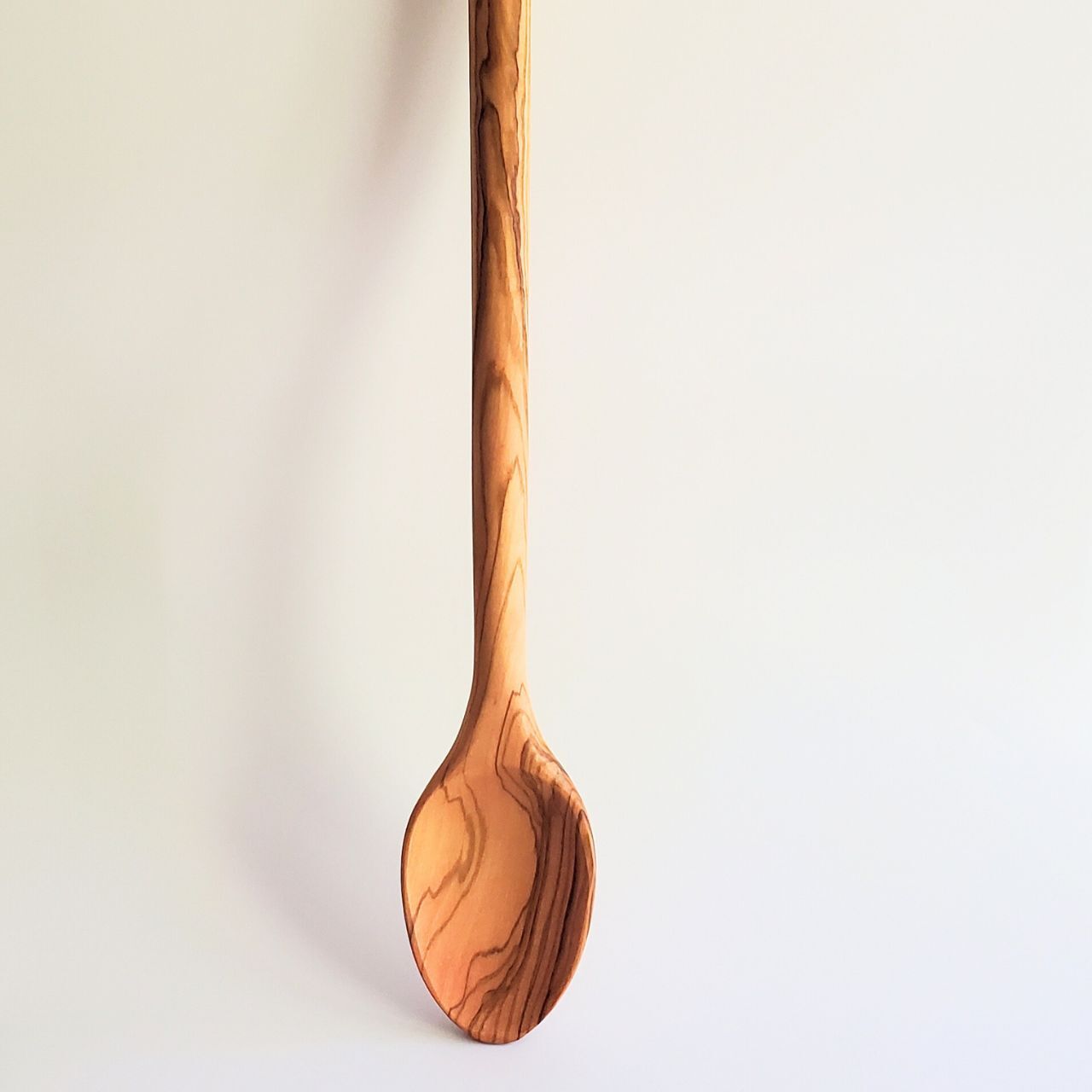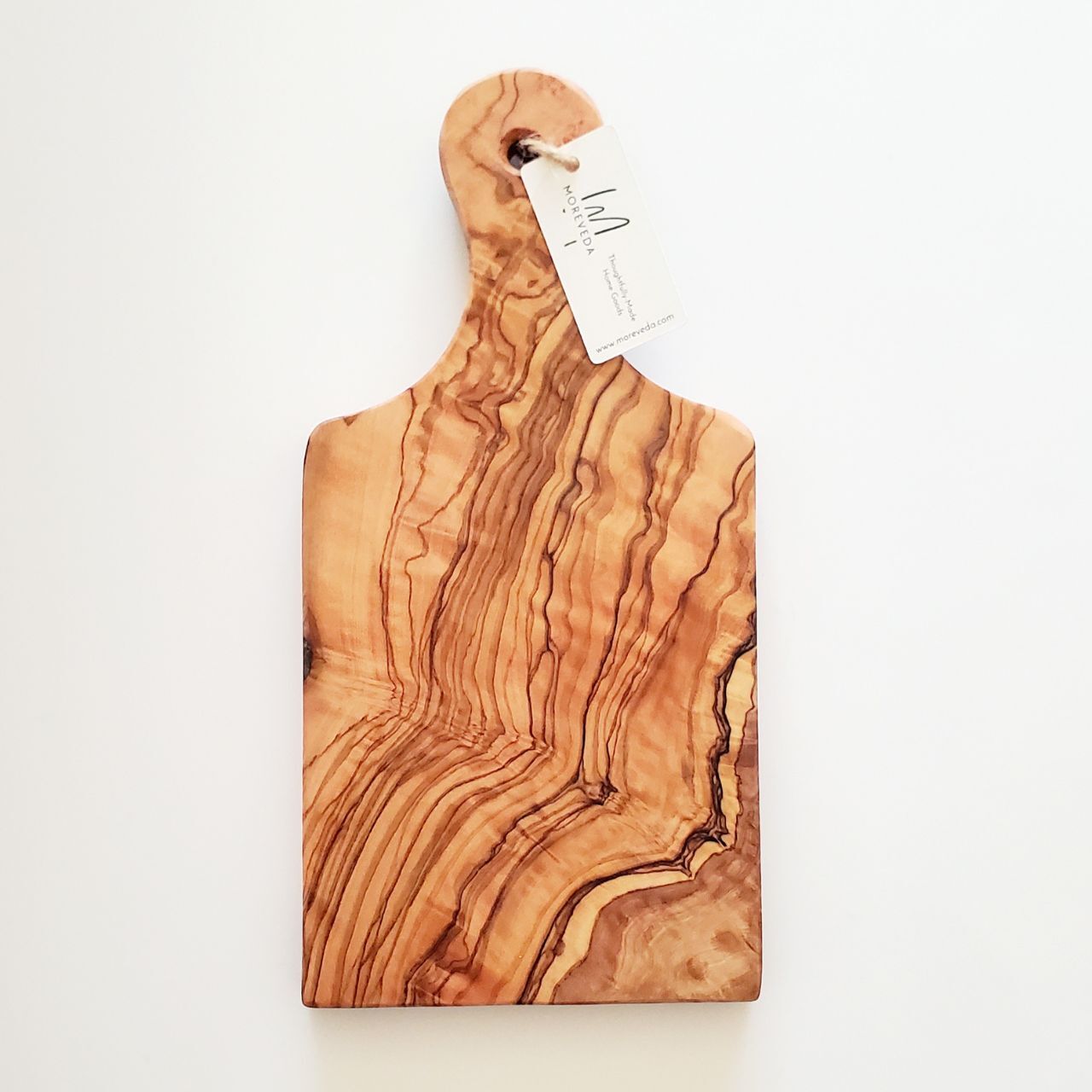Posted by Moreveda on Mar 12th 2025
Olive Wood Products In The Kitchen

The history of olive wood stretches back millennia, interwoven with the civilizations that flourished around the Mediterranean Sea. Ancient Egyptians, Greeks, and Romans all utilized olive wood for various purposes, from crafting tools and furniture to creating decorative objects. The olive tree itself, a symbol of peace and prosperity, has been revered for its resilience and longevity. This deep historical connection, coupled with the wood's inherent beauty and durability, has ensured its enduring popularity in kitchenware and beyond, making it a timeless material cherished for generations.

WHY USE OLIVE WOOD PRODUCTS IN THE KITCHEN?
Durability and Longevity
- Olive wood is a very dense and hard wood, making it highly durable and resistant to wear and tear. With proper care, olive wood kitchenware can last for many years, making it a worthwhile investment.
Naturally Resistant To Bacteria
- Olive wood has natural oils that contribute to its resistance to bacteria and odors.
Gentle on Cookware
- Olive wood utensils are less likely to scratch or damage delicate cookware, such as non-stick pans.
Variations in Appearance
- Each piece of olive wood has a unique grain pattern and color, adding a beautiful and natural touch to your kitchen. These natural variations in color and grain patterns do not affect the quality of the product.
Odor Resistance
- Olive wood is known for its ability to resist absorbing odors. This is due to its dense structure and natural oils. While it's generally very effective, strong odors like garlic or onions might linger slightly, but they typically dissipate after washing.
Scratch Resistance
- Olive wood is a hardwood, making it relatively resistant to scratches.
- It can withstand regular use in the kitchen, including chopping and slicing.
- It is more scratch resistant than many other woods. Also as the knives sink into the wood fibre, often the marks are not very visible.
- The natural grain patterns of olive wood can also help to conceal minor scratches.
Stain Resistance
- Olive wood's density and natural oils provide a decent barrier against stains from many foods. However, highly pigmented foods or liquids, such as beet juice or red wine, could potentially leave a stain if left to sit for an extended period. Proper oiling helps to create a protective layer, enhancing stain resistance.

MOST POPULAR USES
Olive wood utensils are suitable for stirring hot dishes, serving warm foods, and general cooking tasks. Olive wood kitchenware is prized for its beauty and practicality, leading to a variety of common uses in the kitchen. Here are some of the most frequent applications:
Serving Boards and Platters
Charcuterie boards: Displaying cheeses, cured meats, and other appetizers.
Serving platters: Presenting fruits, vegetables, and other dishes.
Cheese boards: Showcasing a variety of cheeses.
Utensils
Spoons: For stirring, serving, and general cooking.
Spatulas: For flipping and serving food.
Salad servers: For tossing and serving salads.
Bowls
Salad bowls: For serving salads and other side dishes.
Fruit bowls: For displaying fruits.
Serving bowls: For various foods.
Cutting Boards
Chopping boards: For cutting fruits, vegetables, and other ingredients.
Bread boards: For slicing bread.
Other Uses
Mortar and pestles.
Salt and pepper cellars.
Coasters.
GENERAL CLEANING
Handwashing
- This is the most crucial aspect of olive wood care. Always handwash your olive wood items.
- Use warm water and a mild dish soap.
- Gently clean the surface with a soft sponge or cloth.
- Rinse thoroughly with clean water.
- Immediately dry the wood with a clean, soft towel.
Avoid Dishwashers
- Never place olive wood in the dishwasher. The high heat and harsh detergents can cause the wood to crack, warp, and dry out.
No Soaking
- Do not soak olive wood in water. Prolonged exposure to water can damage the wood.
MAINTENANCE
Food-grade mineral oil
- This is a clear, non-toxic oil that won't go rancid, making it ideal for items that come into contact with food. It helps to prevent the wood from drying out and cracking, preserving its natural beauty and extending its lifespan.
Olive wood kitchenware enhances the everyday culinary experience, offering both practical functionality and a touch of rustic elegance. Its dense, non-porous nature makes it ideal for food preparation and serving, resisting odors and bacteria while being gentle on delicate cookware. Olive wood's natural beauty makes it ideal for serving and display, while its durability makes it suitable for everyday kitchen tasks.
